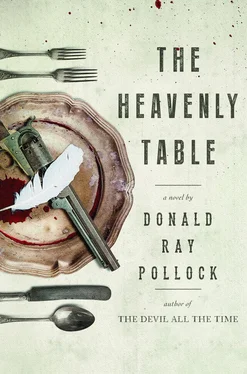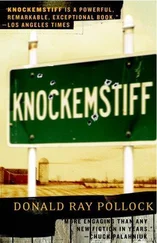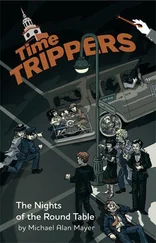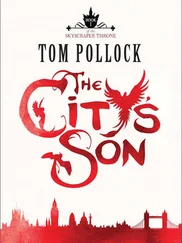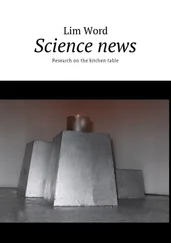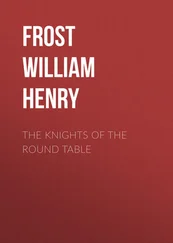“Sounds like a helluva job,” Ellsworth said.
“It’s an awful of a thing to say, but hogs is cleaner than a lot of the people around here. And since they started building Camp Pritchard, the town’s nearly doubled in size. That’s a fair amount of fecal matter when you think about it.” Anytime he found himself in a conversation with someone, especially a stranger, Jasper liked to throw in a technical phrase if given the opportunity, so that the person would know he truly was a professional. “Fecal matter” was one of his favorites.
“I imagine so,” Ellsworth said.
“Right now the drinking water’s the main worry,” Jasper went on. “I find effluent running into a well, I got no choice but to shut it down.”
Ellsworth wasn’t sure how to respond, but he was damn glad he lived out in the country where a man had room to shit all he wanted. Clearly he was in the presence of an official who wielded a lot of power. After all, he thought, only someone with substantial pull could shut down a man’s water supply, no matter what sort of filth was floating in it. Taking a chance that the man might be in agreement, he said, “Well, these are modern times, I guess.”
Jasper’s face lit up and he gave the rat a good shake. “Yes, sir, they are,” he said, his voice rising with excitement, “but you still got a lot of people set in their ways. As Mr. Rawlings says, they want to hang on to their slop jars and corncobs and privies and jakes no matter what. Hell, I think half of them would do their business right out in the street if they could get by with it. You mark my word, though, if’n we don’t kill ourselves off first, someday everybody in the country will have indoor facilities, and I don’t just mean some hole sawed in the floor, either, like Chester Dotson’s got in his parlor.” He took a deep breath and wiped his nose with the same hand that held the rat. “Well, it’s been nice talkin’ to ye, mister, but I better get back to it. Last time I counted, there were still over eighteen hundred outhouses in this town, and I’d bet my buffalo gun at least one of them is causin’ trouble today.” Then he turned on his rubber heels and headed across the redbrick street, swinging the rat by the tail like a whirligig.
—
A FEW MINUTES later, Ellsworth halted the mule in front of a small white house. From a porch post hung a wooden sign that had a broom painted on it with a careful hand. Across the street, several men were squeezed together on a bench in front of the barbershop smoking, while another stood reading them a story from a newspaper in a theatrical manner, with much hand-waving and fist-clenching and verbal emphasis on certain words. The farmer set the brake on the wagon, then walked up to the porch. He knocked on the door and a voice inside called out, “It’s open.” He stepped inside a dark and musty room that smelled of stale sweat and straw and bacon grease. Hanging in one corner from a hook in the ceiling was a birdcage that contained what appeared to be a mummified parakeet. An old man with long white hair sat in a rocking chair in the opposite corner. Even though the air was stifling inside the closed-up room, he wore a thick woolen sweater underneath a butcher’s apron stained with spills from a hundred dinners. His eyes were covered with a translucent film that reminded Ellsworth of egg whites. The man leaned forward and sniffed the air. “You got a mule?” he asked.
“Yeah.”
“Thought so,” the man said, tapping a crooked finger to his nose. “Mules got a smell all their own. I used to have a team of ’em back when I could see.”
“That right?” Ellsworth said. He found that he couldn’t stop staring at the dried-up bird in the cage. He wondered if the man had forgotten it, or just couldn’t bear to part with it. This room, he thought, must get awful lonely at times.
“Well,” the man said, “what you need?”
“The sanitation inspector mentioned you got brooms for sale.”
“You mean Jasper?”
“He told me you was his uncle,” Ellsworth said.
“Is he still wearing that goddamn helmet?”
“He had one on, yeah.”
The old man laughed. “Don’t get me wrong, Jasper’s all right, but sometimes I think that job might have gone to his head.” He paused and spat into a tin cup he held in his lap. Then a sly grin spread over his face. “I don’t reckon he mentioned his dick, did he?”
“What?” Ellsworth asked, a little startled.
“Didn’t think so,” the broom maker said. “If ye ask me, that’s what he should be proud of. Hell, anybody can count turds, but there’s few men alive hung like ol’ Jasper. He’d give one of them bull elephants a run for their money.”
“Well, I only talked to him for a minute or two.”
“Yeah,” the man said, “he’s right ashamed of it, and I blame his mother for that, her and that goddamn religion of hers. She did everything in her power to ruin that boy. Why, I had me a cock like that, I’d have the women a-crawlin’ around here on the floor begging for it.”
Ellsworth coughed and cleared his throat. “So, about the brooms,” he said.
“Yes, sir,” the old man continued, ignoring him, “they’d think they’d had a log chain drug through ’em by the time I got done, by God. I’d put…”
The broom maker was still talking when Ellsworth slipped out the door. Thankfully, the men sitting on the bench across the street now seemed to be in a deep discussion, and he managed to get away without being noticed. He was almost out of town when he saw the saloon across from the paper mill, a shabby hole in the wall called the Blind Owl. Ellsworth pulled the mule over and thought for a minute. Though he wasn’t in the mood to talk to anyone else today, a drink surely would do him good after all the aggravation he had been through. Of course, there were bound to be people in there telling tales and spreading lies, but what if he just kept his mouth shut and minded his own business? That would work, he told himself, and he set the brake on the wagon and went inside.
The room was dark, and he’d already laid a quarter on the bar before he realized to his surprise that he was the only customer in the place. The keep set a glass of warm beer and a shot down in front of the farmer, then went to the other end of the bar and reached his hand down into a gallon jar. All the while Ellsworth sat there, the man stood silently looking out the window at the street with a scowl on his face, crunching pig’s feet and spitting the gristle out on the floor. Not a single word was said. His name was Frank Pollard, and he had been a hateful bully for as long as anyone could remember. He had grown up believing that he was something special, and the discovery, around the time of his fourteenth birthday, that this was not the case had ruined him for any sort of happiness that didn’t involve making other people miserable. Pollard’s father had left him a little house and twelve acres when he passed ten years ago, but the son despised country life even more than people, and so he sold the place the morning of the old man’s funeral and moved to Meade that afternoon. He bought the Blind Owl three days later. He slept on a cot in the back room, and barely made enough to keep the bills paid — nobody in their right mind would have ever hired Pollard to run a business of any kind — but he didn’t care. He’d discovered the first week he owned the joint that it was perfect for attracting the kind of scum he could feel superior to, which was a feeling he needed much more than any amount of money. Drunks were weak-minded and careless and apt to let their emotions get the best of them. He loved to goad them into saying something stupid or taking a swing at him so that he had an excuse to take them out back in the alley and beat them senseless; and for many years that had been enough.
Читать дальше
